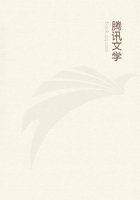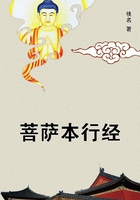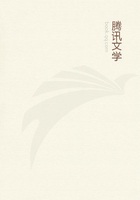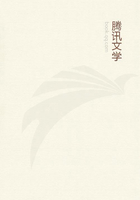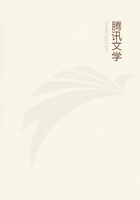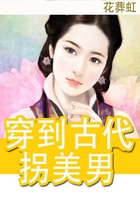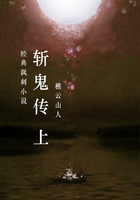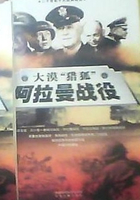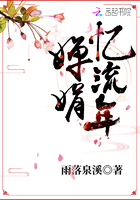This formlessness, this monotony of splendour, is felt even in 'Adonais' (1821), his elegy on the death of Keats. John Keats was a very different person from Shelley. The son of a livery-stable keeper, he had been an apothecary's apprentice, and for a short time had walked the hospitals. He was driven into literature by sheer artistic passion, and not at all from any craving to ameliorate the world. His odes are among the chief glories of the English language. His life, unlike Shelley's, was devoted entirely to art, and was uneventful, its only incidents an unhappy love- affair, and the growth, hastened by disappointed passion and the 'Quarterly Review's' contemptuous attack on his work, of the consumption which killed him at the age of twenty-six. He was sent to Italy as a last chance. Shelley, who was then at Pisa, proposed to nurse him back to health, and offered him shelter. Keats refused the invitation, and died at Rome on February 23, 1821. Shelley was not intimate with Keats, and had been slow to recognise his genius; but it was enough that he was a poet, in sympathy with the Radicals, an exile, and the victim of the Tory reviewers. There is not ill Adonais that note of personal bereavement which wails through Tennyson's 'In Memoriam' or Cowley's 'Ode on the Death of Mr. Hervey'. Much, especially in the earlier stanzas, is common form. The Muse Urania is summoned to lament, and a host of personified abstractions flit before us, "like pageantry of mist on an autumnal stream"--
"Desires and Adorations, Winged Persuasions, and veiled Destinies, Splendours and Glooms, and glimmering Incarnations Of Hopes and Fears, and twilight Fantasies."At first he scarcely seems to know what it is that he wants to say, but as he proceeds he warms to his work. The poets gather round Adonais' bier, and in four admirable stanzas Shelley describes himself as "a phantom among men," who"Had gazed on Nature's naked loveliness, Actaeon-like; and now he fled astray With feeble steps o'er the world's wilderness, And his own thoughts along that rugged way Pursued, like raging hounds, their father and their prey."The Quarterly Reviewer is next chastised, and at last Shelley has found his cue. The strain rises from thoughts of mortality to the consolations of the eternal:
'Peace, peace! he is not dead, he doth not sleep! He hath awakened from the dream of life. 'Tis we, who, lost in stormy visions, keep With phantoms an unprofitable strife."Keats is made "one with Nature"; he is a parce of that power"Which wields the world with never wearied love, Sustains it from beneath, and kindles it above."It is once more the same conviction, the offspring of his philosophy and of his suffering, that we noticed in Hellas, only here the pathos is more acute. So strong is the sense of his own misery, the premonition of his own death, that we scarcely know, nor does it matter, whether it is in the person of Keats or of himself that he is lamenting the impermanence of earthly good. His spirit was hastening to escape from "the last clouds of cold mortality"; his bark is driven"Far from the shore, far from the trembling throng Whose sails were never to the tempest given."A year later he was drowned.
While the beauty of Adonais is easily appreciated, 'Epipsychidion', written in the same year, must strike many readers as mere moonshine and madness. In 'Alastor', the poet, at the opening of his career, had pursued in vain through the wilderness of the world a vision of ideal loveliness; it would now seem that this vision is at last embodied in "the noble and unfortunate Lady Emilia Viviani," to whom 'Epipsychidion' is addressed. Shelley begins by exhausting, in the effort to express her perfection, all the metaphors that rapture can suggest. He calls her his adored nightingale, a spirit-winged heart, a seraph of heaven, sweet benediction in the eternal curse, moon beyond the clouds, star above the storm, "thou Wonder and thou Beauty and thou Terror! Thou Harmony of Nature's art!" She is a sweet lamp, a "well of sealed and secret happiness," a star, a tone, a light, a solitude, a refuge, a delight, a lute, a buried treasure, a cradle, a violet- shaded grave, an antelope, a moon shining through a mist of dew. But all his "world of fancies" is unequal to express her; he breaks off in despair. Acalmer passage of great interest then explains his philosophy of love: "That best philosophy, whose taste Makes this cold common hell, ourlife, a doom As glorious as a fiery martyrdom,"and tells how he "never was attached to that great sect," which requires that everyone should bind himself for life to one mistress or friend; for the secret of true love is that it is increased, not diminished, by division; like imagination, it fills the universe; the parts exceed the whole, and this is the great characteristic distinguishing all things good from all things evil. We then have a shadowy record of love's dealings with him. In childhood he clasped the vision in every natural sight and sound, in verse, and in philosophy. Then it fled, this "soul out of my soul." He goes into the wintry forest of life, where "one whose voice was venomed melody" entraps and poisons his youth. The ideal is sought in vain in many mortal shapes, until the moon rises on him, "the cold chaste Moon," smiling on his soul, which lies in a death-like trance, a frozen ocean. At last the long- sought vision comes into the wintry forest; it is Emily, like the sun, bringing light and odour and new life. Henceforth he is a world ruled by and rejoicing in these twin spheres. "As to real flesh and blood," he said in a letter to Leigh Hunt, "you know that I do not deal in those articles; you might as well go to a gin-shop for a leg of mutton as expect anything human or earthly from me." Yet it is certain that the figures behind the shifting web of metaphors are partly real--that the poisonous enchantress is his first wife, and the moon that saved him from despair his second wife. The last part of the poem hymns the bliss of union with the ideal. Emily must fly with him; "a ship is floating in the harbour now," and there is "an isle under Ionian skies," the fairest of all Shelley's imaginary landscapes, where their two souls may become one. Then, at the supreme moment, the song trembles and stops:
"Woe is me! The winged words on which my soul would pierce Into the heights of love's rare universe, Are chains of lead around its flight of fire-- I pant, I sink, I tremble, I expire."We have now taken some view of the chief of Shelley's longer poems. Most of these were published during his life. They brought him little applause and much execration, but if he had written nothing else his famewould still be secure. They are, however, less than half of the verse that he actually wrote. Besides many completed poems, it remained for his wife to decipher, from scraps of paper, scribbled over, interlined, and erased, a host of fragments, all valuable, and many of them gems of purest ray. We must now attempt a general estimate of this whole output.

